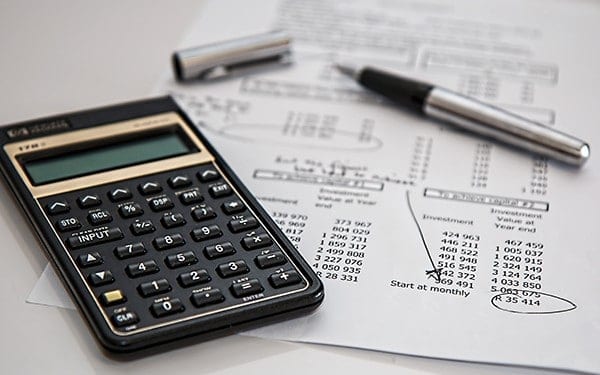
Should I register my company for VAT?
Posted on 4th April 2018 by Phil Ainley
VAT, or value added tax, is a tax that is added to the value of goods or services sold in the UK. VAT can be charged on things like:
* Business sales – when you sell goods or services.
* Hiring or loaning goods.
* Selling business assets.
* Commission.
* Items sold to staff such as canteen meals.
* Business goods for personal use.
* Non-sales such as bartering or part-exchanges and gifts.
These are all known as taxable supplies. Different rules apply to charities. https://www.gov.uk/vat-charities/registration
Here’s how it works: The price of goods is £120. If the rate of VAT is 20% then the VAT on this transaction will be £20. When a business charges VAT on a sale they are collecting that money on behalf of HM Revenue and Customs. If a business is VAT registered they may reclaim any VAT they have paid on business-related goods or purchases.
Most goods and services will have the standard rate of 20% applied, but certain products will have a reduced rate or be exempt from VAT payments.
For in-depth information click https://www.gov.uk/vat-businesses and consult your accountant for advice.
As a business owner, it’s important that you can find your way around VAT as the implications for ignoring your obligations can be steep. If your VAT return is late more than twice you will face a 2% surcharge if your annual turnover is less than £150,000 and 5% if it’s more than £150,000.
Do I need to register for VAT?
If your company annual turnover is more than £85,000, you need to be VAT registered, fail to do so within 30 days and you could face a fine. If your company isn’t VAT registered then you cannot charge for VAT. When you are VAT registered, then you can charge VAT on things like sales, hiring goods to someone, selling business assets, or commission. In addition to charging VAT, you can also claim it back on business purchases. For this reason, it can help you to save money if the VAT you’ve paid on purchases is more than the VAT charged on sales.
You must be aware that your turnover figure is calculated on a 12-month rolling basis (12-months from any given point) and is not based on your turnover for a calendar year.
When to register for VAT
You will have to register for VAT once you have passed the VAT threshold, or once you know that you will. This means that, if your business turnover exceeds £85,000 in 12 months, you will need to register for VAT. Likewise, if you expect you will exceed this threshold in a single 30 day period, you will also need to register. It’s important that you pay attention to changes to the VAT threshold and also are aware of your annual turnover.
Voluntary VAT registration
Even if your annual turnover is below the threshold amount, there are still many benefits VAT registration and some people will choose the voluntary VAT registration path. If you do not want to register but your income temporarily goes over the income threshold, you can apply for an exception. You will have to write to HMRC and show why your income won’t go over the deregistration threshold of £83,000.
Benefits of being VAT registered
One of the biggest benefits of being VAT registered is that you might be able to save money by claiming back any VAT paid on business purchases. Some companies like to be VAT registered because they believe it shows they are committed and credible. It also shows that you are ready for growth, as you won’t need to keep an eye on your earnings and be wary of the threshold. If your company is registered for VAT and this is shown on invoices, it will also allow other businesses to make favourable assumptions about your position.
The down side you may find you have to pay more to HMRC if your output tax outweighs your input tax.
You will also find that you have to spend more time on paperwork as VAT is collected by businesses on behalf of the Government, so you will need to file a VAT Return, which will add to your paperwork. Installing good accounting software is recommended to help you with this.
You may also find that you have to pass on higher prices to your customers, especially if you work mainly in a B2C environment or with businesses who are not registered for VAT.
Consider the different schemes available to you
The amount of VAT a business pays, or claims back from HMRC is usually the difference between the VAT charged by the business to customers and the VAT the business pays on its own purchases.
The Flat Rate Scheme: With the Flat Rate Scheme you pay a fixed rate of VAT to HMRC. You keep the difference between what you charge your customers and pay to HMRC. You CANNOT reclaim the VAT on your purchases, except for certain capital assets over £2,000.
Another option is to join the Flat Rate scheme if you’re a VAT-registered business and if you expect your VAT taxable turnover to be £150,000 or less (excluding VAT) in the next 12 months.
The Cash Accounting Scheme: Common among small businesses as they only need to pay HMRC the VAT income they have received during a quarter. The Cash Accounting Scheme does not allow you to claim back any VAT on invoices that have not been paid. To access this scheme a business must have a turnover of less than £1.35 million.
The Annual Accounting Scheme: Rather than submitting quarterly returns and payments, the Annual Accounting Scheme allows you to make advance payments towards your VAT bill throughout the year. You then pay the balance once you have submitted your VAT Return, or claim back any refund due. Again, this scheme is only available to businesses with a turnover of less than £1.35 million.
For more in-depth information about VAT schemes please consult your Accountant for advice and visit the Gov.uk website https://www.gov.uk/
Put the money aside
A key point to remember about being a VAT registered business is that the money you receive from the VAT you add to your invoices is not yours, it is the property of HM Revenue and Customs. There are many sorry stories of organisations that cannot pay their VAT bill. This is commonly due to the monies received being spent elsewhere in the business. Thus leaving a shortfall in available funds at the end of a quarter.
Most business bank accounts will allow a separate online reserve account to be set up alongside the main current account. Take advantage of this and save your VAT money so you can always pay your VAT bill on time.
If your company is facing a VAT dispute our Tax Enquiry and Legal Expenses insurance could help ease the pressure. This means you can focus on growing your business.
Call our friendly team today on 0333 321 1403 for details and a quote.
Related Articles:
How to Prepare Your Business for Making Tax Digital
What are the changes to self-employed tax and how will they affect you?
Useful Links

Professional Indemnity Insurance
Protects against claims of alleged negligence in your professional services, advice and designs.

Public Liability Insurance
Protects against claims of injury to third-parties or damage to a third-party's property.

Employers' Liability Insurance
A legal requirement for anyone employing staff. Protects your business in-case an employee is injured at work.

Legal Expenses and Tax Investigation Insurance
Cover for contract disputes, tax investigations, court attendance, debt recovery, and more.
